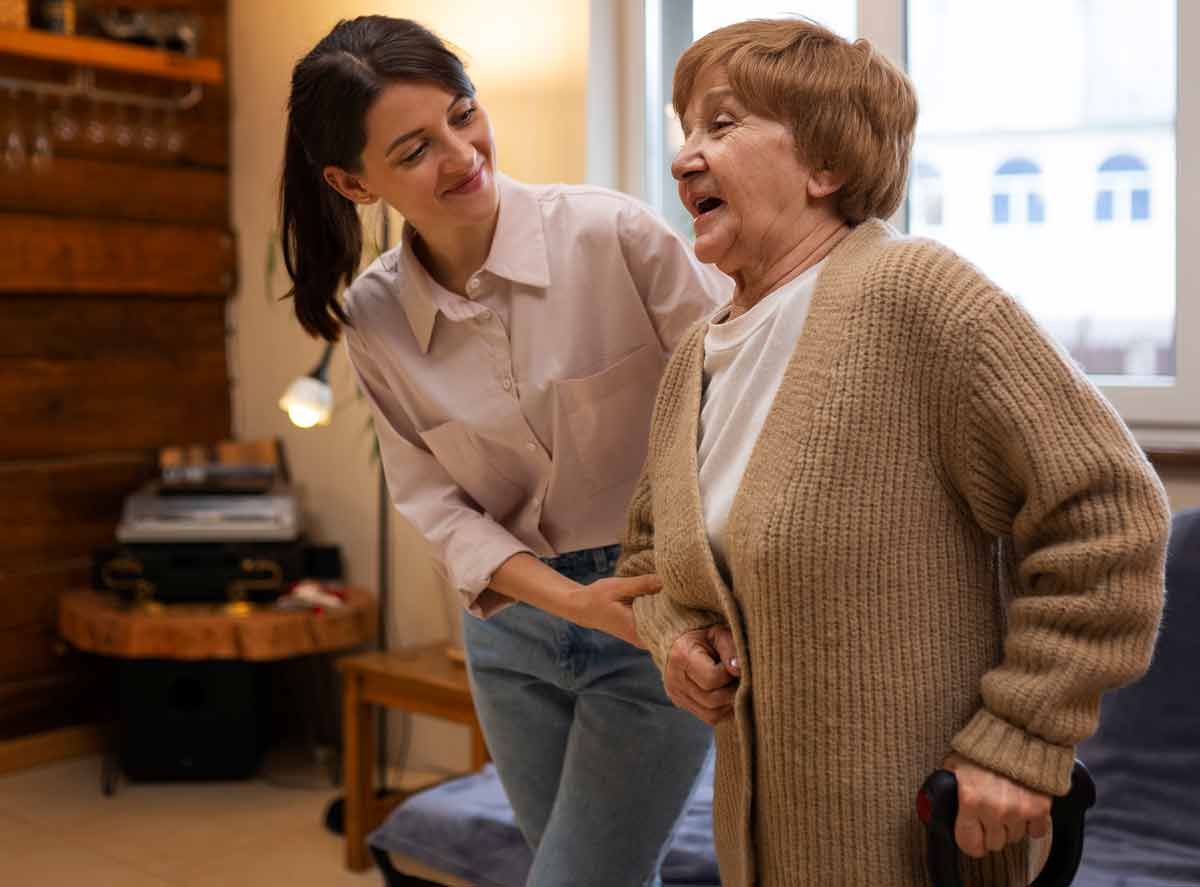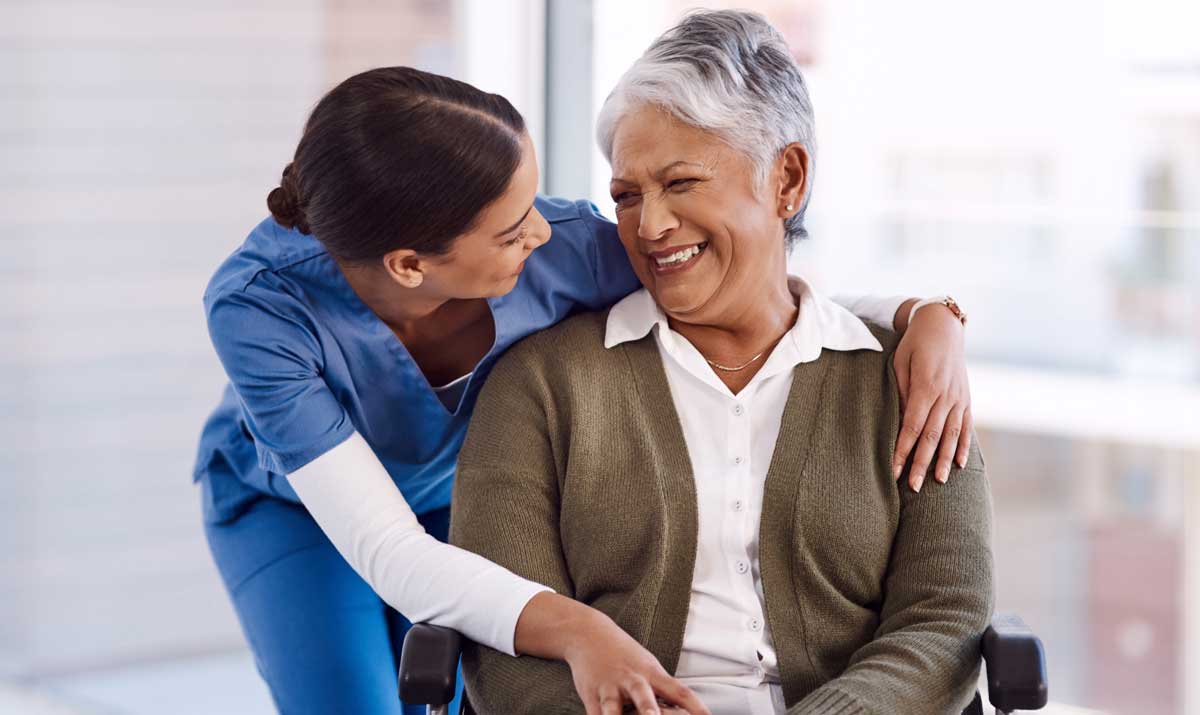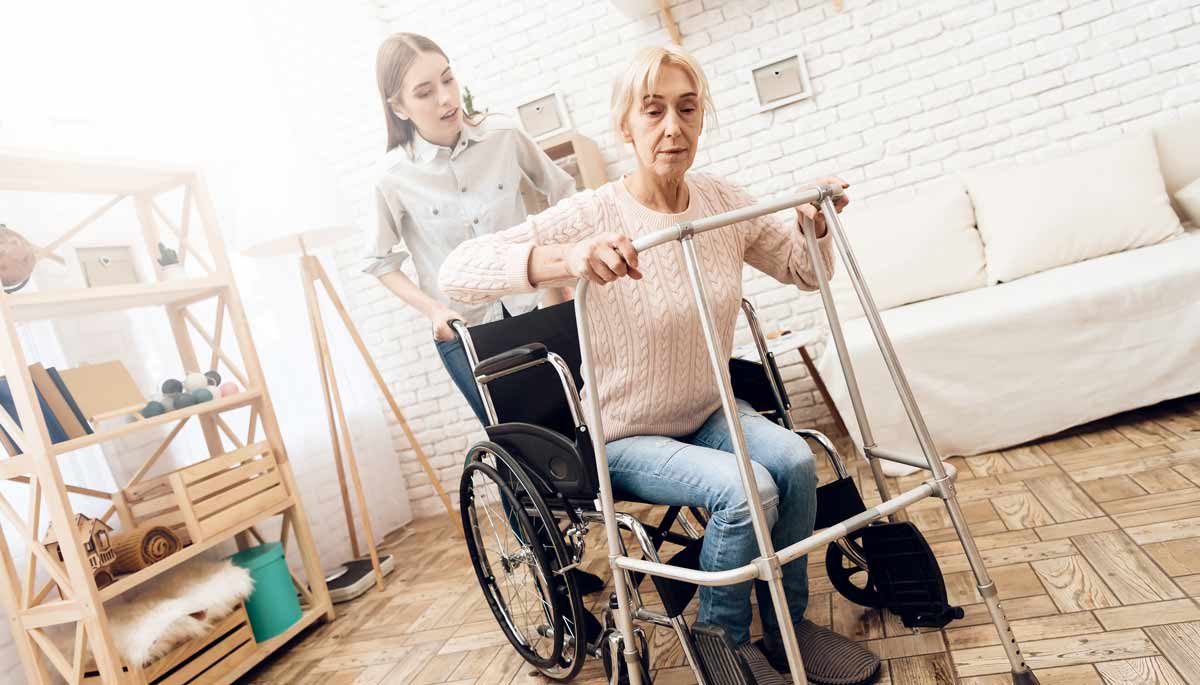Aging is a natural part of life, bringing wisdom, love, and personal growth. However, as we age, our bodies undergo changes that can impact our independence and ability to care for ourselves. We may find ourselves needing personal or household support, or simply wanting companionship and emotional support. Whatever it may be, this is where caregivers can step in, providing essential support and guidance during this significant life transition.
Caregiver vs. Caretaker: What’s the Difference
When it comes to supporting loved ones, it’s important to understand the distinct roles of caregivers and caretakers. While often used interchangeably, these terms describe different types of support. Caretakers focus on managing properties and objects, whereas caregivers provide holistic, person-centered support—this includes assistance with daily tasks, emotional support, and healthcare support.
For individuals seeking more than just external assistance, caregivers offer a comprehensive approach that emphasizes emotional well-being and personalized attention.
As we delve deeper into the world of caregiving, it’s important to recognize that not all caregivers are the same. There are different types of caregivers who offer specialized support to meet unique needs.
Caregivers can be classified into various categories, which we will list and describe below.

Types of Caregivers
There are numerous roles that elderly caregivers can play in your life. They cover family matters, age, and even medical concerns, to name a few. The different types of caregivers include:
Family Caregivers
Family caregivers provide emotional support, basic care, and household assistance to their loved ones, often without compensation. Their responsibilities may include:
- Emotional support (social support, companionship)
- Personal care (bathing, dressing, feeding)
- Household management (laundry, meal prepping, housekeeping)
- Transportation and errands (grocery shopping, paying bills)
- Healthcare support (medication management and appointments)
Professional Caregivers
Professional caregivers, on the other hand, offer specialized care and support in a home setting or a care facility. What sets them apart are the following:
- Training and certification (CNA, HHA, LPN)
- Expertise in specialized care (Alzheimer’s, dementia, end-of-life)
- Medical monitoring (health status, vital signs)
- Skilled care (injections, wound care)

Independent Caregiver
Independent caregivers are self-employed caregivers who may or may not possess certifications and specialized training. They provide care services directly to clients and families without being affiliated with a care agency.
The benefits of this include:
- Cost-effectiveness (lower rate compared to agency rate)
- Flexibility (customizable scheduling and care plans)
- Personalized care (direct relationship with the client and families)
However, there are risks that come with hiring independent caregivers, such as:
- Liability (family assumes responsibility for caregiver’s actions)
- Quality (no agency vetting or training)
- Reliability (caregiver reliability and availability uncertain)
Private Duty Caregivers
Private duty caregivers and independent caregivers are often used interchangeably, but there are subtle differences. Both provide direct one-on-one care to individuals in a private home setting and offer flexibility and care ranging from non-medical to medical care. Though they may work independently, private-duty caregivers are typically employed by private-duty agencies. As a result, private-duty caregivers often come with:
- Agency oversight and support
- Training and certification required by the agency
- Liability and insurance coverage
Informal Caregivers
Informal caregivers, also known as family caregivers or unpaid caregivers, provide care and support to family members, loved ones, or friends without any compensation. They do not have any formal training or certification. Their services include:
- Emotional support
- Personal care
- Household management
- Healthcare support
Volunteer Caregivers
Volunteer caregivers provide unpaid care and support to those in need, such as the elderly, people with terminal illnesses, individuals with disabilities, veterans, and those with chronic conditions. They are often affiliated with hospice or community programs, have hospice skills, and play an important role in providing:
- Emotional support
- Practical assistance
- Personal care
- Healthcare support
● Specialized services
Services Provided by Caregivers
As we have seen, caregivers provide a wide range of services to support individuals with physical, emotional, or cognitive needs, helping them to live comfortably and safely in their homes or care facilities.
- Personal Care Assistance (bathing, dressing, mobility assistance, toileting, and hygiene)
- Household Support (meal preparation, light housekeeping, shopping, bill management, pet care, transportation, errands)
- Health-Related Services (medication management, post-surgical care, therapy support, health monitoring)
- Emotional and Social Support (companionship, emotional support, community engagement, recreational activities)
- Specialized care (tailored support and services for individuals with specific needs or conditions, e.g. Alzheimer’s and dementia care, chronic condition management, palliative care, respite care, mental health support, pediatric care, end-of-life care)

You Deserve the Best Care
Understanding the differences between caregivers and caretakers is essential for those seeking the right kind of support for their loved ones. Whether it’s personal care, emotional assistance, or specialized medical help, caregivers provide comprehensive, person-centered services that enhance the quality of life for individuals in need. From family caregivers to professional and volunteer caregivers, each plays a unique and vital role in offering the support necessary for comfort, safety, and independence. Knowing the available types of caregivers and services can make a significant difference in choosing the right care. Remember, seeking help is not only beneficial for your loved one but also for you, the caregiver, in managing the challenges of caregiving effectively.
About FreedomCare
At FreedomCare, we believe that no one is better equipped to provide care than family members and close friends. That’s why we empower families by enabling them to care for their loved ones while being compensated for their efforts. We give individuals the freedom to hire and manage their own caregivers, which often include family members.
Our mission is to provide compassionate support, allowing caregivers to focus on what matters most—offering care with dignity, respect, and love. With FreedomCare, families can access financial support, flexible caregiving options, and a range of personalized services to meet the unique needs of their loved ones. We help patients and caregivers navigate the complexities of caregiving, offering resources, training, and tools to ensure that every caregiver feels confident and supported in their role.
Whether you are providing care to an elderly parent, a disabled child, or a loved one recovering from illness, FreedomCare is here to help you get the care and compensation you deserve. Learn more about how we can support you in your caregiving journey today!
